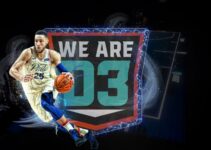It’s a figure that flies under the radar: a mere 10.5% of Major League Baseball (MLB) players come from Division III (D3) and junior colleges. Often bypassed by the bright lights and big budgets of Division I, these institutions are frequently sidelined in the sports narrative, despite their substantial contributions to the world of professional baseball. Yet, this statistic represents a cadre of determined athletes—D3 baseball players who’ve ascended to MLB ranks, transforming obscurity into opportunity and, impressively, etching their achievements into MLB lore.
Key Takeaways
- Division III and junior colleges have been a stepping stone for over 10% of MLB players, defying common expectations of the origins of professional athletes.
- Despite limited visibility, D3 baseball players have proved their mettle by making significant contributions to MLB teams and even achieving Hall of Fame status.
- The journey from D3 to MLB often involves overcoming unique challenges, emphasizing perseverance, and underscoring the underdog spirit of many successful players.
- These success stories provide inspiration and a roadmap for aspiring baseball players who may not be starting their careers in Division I schools.
- The achievements of D3 baseball players in MLB showcase the depth of talent and potential present in all college divisions and the importance of junior colleges in developing future stars.
The Unique Appeal of JUCO for Aspiring MLB Players
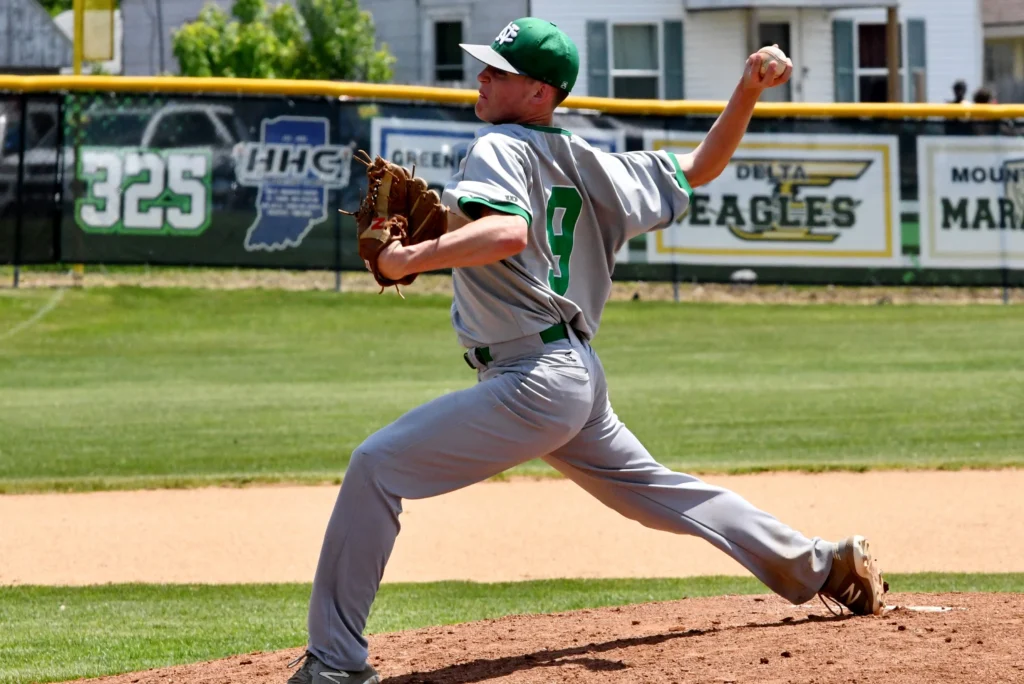
Source: thestarpress.com
The journey to the Major League Baseball (MLB) is not a straightforward path for all athletes. Division III (D3) baseball players who dream of reaching the MLB often find themselves facing a unique set of challenges and opportunities. For many, junior colleges (JUCO) offer a strategic pathway filled with potential success stories. These institutions cater to various needs, providing a tailor-made environment for growth, both on and off the field.
- Gaining Academic Eligibility: At JUCO, players have the chance to improve their grades and meet the NCAA eligibility requirements.
- Ensuring Regular Playtime: Compared to the fierce competition at larger schools, JUCO players enjoy more time on the diamond, which is crucial for honing skills.
- Proximity to Home: Playing closer to home can be a significant emotional support for young athletes.
- Quick Entry into the MLB Draft: JUCO athletes can be drafted after one year, rather than waiting until their junior year at a four-year institution.
Moreover, JUCOs serve as developmental hotbeds, taking players who may have been overlooked by bigger programs and sculpting them into standout talents sought after by major college programs and professional teams. The D3 baseball players success stories through the JUCO system underscore the effectiveness of these colleges in preparing players for the high stakes MLB Draft.
The table below highlights the contrasts between the experiences of D3 players at JUCO versus NCAA institutions:
| Factors | D3/JUCO Experience | NCAA Experience |
|---|---|---|
| Academic Flexibility | More personalized academic support to meet eligibility | Stricter academic standards from the outset |
| Playtime | Higher likelihood of starting positions and regular play | Intense competition may limit playtime |
| Scouting Visibility | Potential to stand out and increase visibility through performance | Must compete with larger pool of high-profile athletes |
| MLB Draft Entry | Eligibility for the draft after one year of play | Eligible for the draft typically after the junior year |
These factors play a crucial role in why the junior college path is burgeoning with D3 baseball players success stories. While a JUCO tenure might seem less prestigious initially, the gritty and tenacious athletes who make this choice often find that it leads to an enriched skill set and a more profound readiness for the MLB Draft and beyond.
Overcoming Academic Hurdles: The JUCO Solution
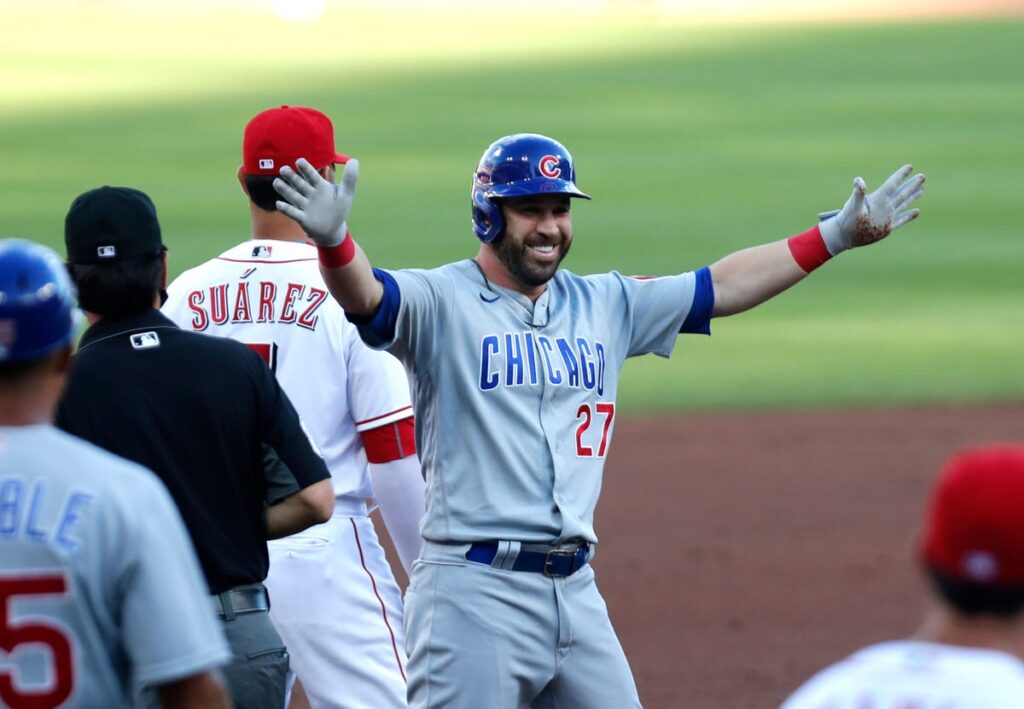
Source: azcentral.com
The pursuit of collegiate baseball is more than a test of physical skill; it’s a challenge of academic commitment. To secure a place on the field, student-athletes must navigate the rigorous standards of academic eligibility, set forth by divisions and conferences across the nation.
The tension between maintaining grades and excelling in sport can be daunting, but junior colleges (JUCO) offer a viable solution. They serve as an educational and athletic stepping stone, enabling students to flourish in both domains. This dual focus is not just beneficial but essential for those aiming to progress to higher-level institutions or pique the interest of major league scouts.
Building Academic Credentials Alongside Athletic Prowess
At the crux of JUCO’s appeal is its capacity to assist students with JUCO struggles, presenting an environment where academic support is as available as baseball coaching. The objective is clear: to empower D3 baseball players in MLB trajectories with the intellectual and athletic toolkit necessary for success at the next level.
Whether it’s improving a GPA or adjusting to the academic workload without sacrificing field time, JUCO programs are acutely aware of the balancing act their players are performing.
Bryce Harper’s JUCO Journey: A Case Study
Bryce Harper’s ascent from JUCO to first overall pick in the MLB Draft magnifies the efficacy of this pathway. Harper illustrates the archetype of a student-athlete utilizing junior college to finesse his transition into professional baseball. His tenure at The College of Southern Nevada is a testament to the power of JUCO in overcoming academic and athletic obstacles.
Sharpening his swing with a wood bat, Harper honed a discipline that proved crucial for his performance as a major leaguer. The alignment of his academic eligibility with explosive athletic growth exemplifies the ideal JUCO outcome: a smooth pivot from the nurturing grounds of junior college to the national stage.
The Road Less Traveled: Notable JUCO Alumni in MLB

Source: danblewett.com
The journey from Division III (D3) baseball to the Major League Baseball (MLB) is a testament to talent, resilience, and unwavering dedication. D3 baseball players are more than just underdogs; their unique paths to the MLB are stories of hidden gems rising to the top of the world’s most competitive baseball stage.
Craig Kimbrel, a record-breaking closer, and Tim Anderson, an MLB batting champion, are shining examples of JUCO alumni who have transcended expectations to become key players in the big leagues.
While D3 colleges might lack the visibility of their D1 counterparts, they serve as critical incubators for raw talent waiting to be discovered. From these under-the-radar programs, D3 baseball players to MLB, have emerged, defying the odds and earning their spots amongst baseball’s elite.
These institutions offer a space where players can refine their skills, gain crucial play time, and maintain academic eligibility—all key factors toward reaching the professional stage.
Below are some notable MLB players who harnessed their JUCO experience as a springboard to their professional careers:
- Craig Kimbrel – His humble beginnings at Wallace State Community College served as the foundation for a career that now includes multiple All-Star selections and a world-renowned status as a dominant relief pitcher.
- Tim Anderson – Having kick-started his career at East Central Community College, Anderson’s swift ascent in pro baseball underscores the fact that D3 colleges can be a launching pad for exceptional talent.
Those players’ routes to the MLB illustrate that D3 baseball programs are more than capable of cultivating major-league-ready athletes. It’s a road less traveled, yet undeniably fruitful for those with the determination to traverse it.
Community Colleges as Unlikely MLB Talent Wells
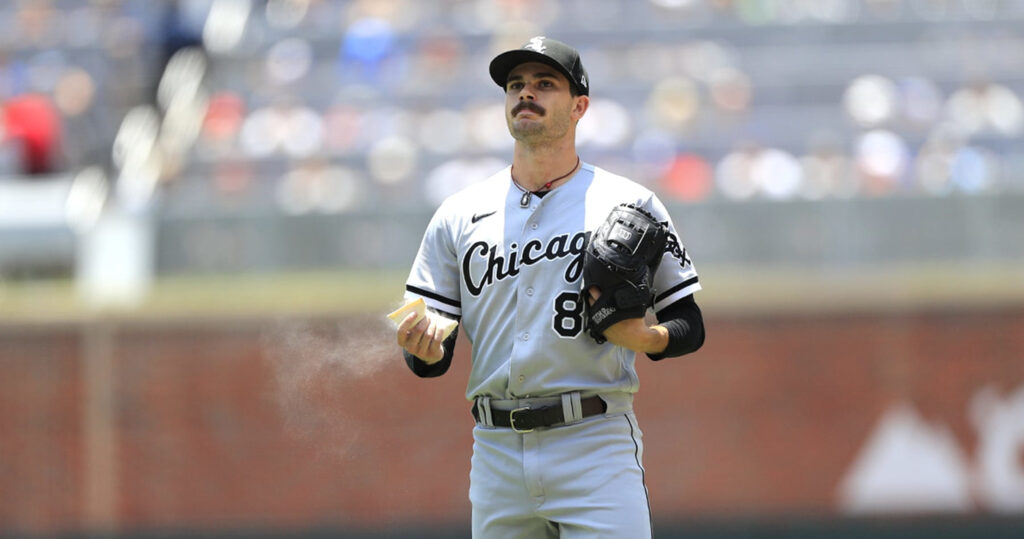
Source: bleacherreport.com
Amidst the fervor of Major League Baseball, community colleges have quietly woven their narrative into the fabric of America’s pastime, challenging the conventional recruitment routes and nurturing future Baseball Hall of Famers. These lesser-celebrated institutions have defied the odds, molding unheralded prospects into major league contenders.
Outshining Expectations: Community College Success Stories
From coast to coast, the success stories of Major League Baseball stars such as Evan Longoria, Charlie Blackmon, and Corey Dickerson share a common, yet not widely televised starting point—a community college education. Each has journeyed from modest beginnings on campuses of hometown colleges to the star-studded ballparks of the major leagues. Their community college experience offered more than just athletic development; it provided a holistic education that seems to have contributed to their success on and off the field.
These institutions are sanctuaries for student-athletes, blending in robust training programs with the opportunity to attain academic credentials. Players optimize regular play, which is indispensable for polishing one’s game, while maintaining the flexibility to heed the call of the MLB Draft. The resultant prowess these players bring to the major leagues is not only technical; it’s a testament to the disciplinary and mental fortitude fostered within these humble facilities.
Pasadena City College’s Hidden Legacy in Professional Baseball
Deep in the annals of baseball history, Pasadena City College holds a special place. This community college, though not always in the sports spotlight, boasts a legacy punctuated by the venerable Jackie Robinson, a Baseball Hall of Famer known for shattering racial barriers in Major League Baseball.
His monumental journey from Pasadena’s playing fields to the Brooklyn Dodgers’ stadium marked the start of a new era in American sports—a legacy emblematic of the profound systemic change facilitated through community college platforms.
This path has been trodden by numerous other players who, though not sharing Robinson’s renown, have become important figures across various MLB rosters. Pasadena City College and similar institutions continue to dispel myths and change narratives, serving as veritable launching pads for burgeoning baseball talent.
The contributions of such colleges to Major League Baseball are immeasurable. These community colleges do not merely act as pipelines for talent; they are cultivators of potential, champions of inclusive opportunity, and at times, a proving ground for those on the fringes of the traditional sporting echelons. As Major League Baseball looks to the future, the role of community colleges as reservoirs of talent—and the stories they inspire—will no doubt be further celebrated, ensuring their place in the sport’s rich and diverse legacy.
Beyond the Bat: How JUCO Shapes Future Major Leaguers
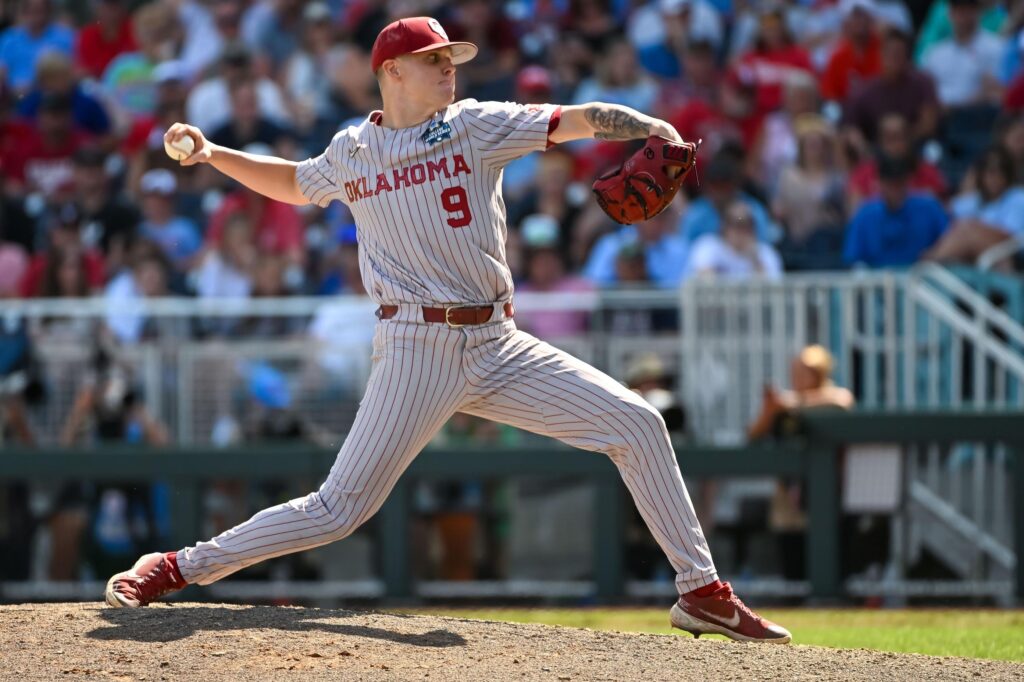
Source: ncaa.com
The journey from Division III (D3) to Major League Baseball (MLB) is a tale of development in skill, character, and mental fortitude. Through junior college (JUCO) programs, prospective major leaguers find opportunities to evolve beyond their athletic prowess, gaining essential life skills that underpin their future careers. Attributes such as resilience, self-reliance, and adaptability are professionally honed within JUCO, equipping D3 baseball players for the challenging transition to MLB.
Fostering these qualities in a balanced environment, where the pressure of high-stakes competition blends with academic pursuits, JUCO serves as a formative landscape for growth. It’s in these settings where the seeds of greatness are often sown, setting the stage for the emergence of notable players within the major leagues.
“Junior college is where you learn a lot about yourself; overcoming struggles on the field, in the classroom, and in life is what shapes you as a player and a person. It’s a pivotal chapter in the story of many D3 baseball players in Major League Baseball.”
- Mentorship from seasoned coaches who’ve seen players make the jump to MLB
- Increased playtime fostering in-game experience and confidence
- Community that supports, but also challenges, budding talent
- Exposure to scouts and recruitment opportunities
Time after time, the JUCO experience proves its worth, not only producing top-tier talent but also well-rounded individuals ready to handle the limelight and pressure that comes with playing at the apex of baseball achievement.
The JUCO Experience: Building a Foundation for MLB Success
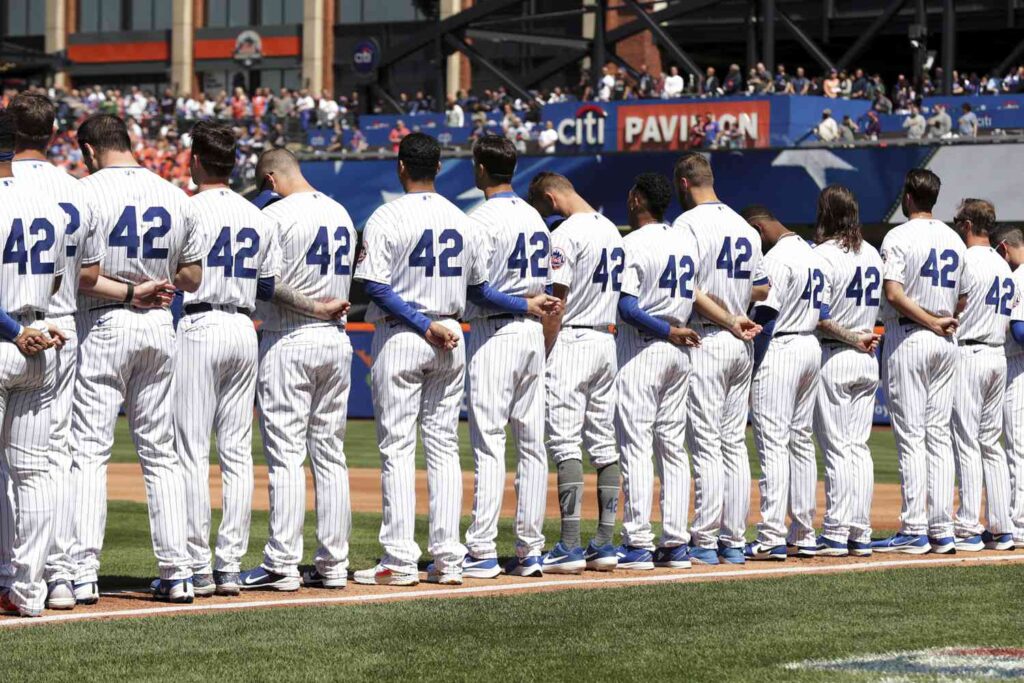
Source: people.com
The journey from junior college fields to the shining diamonds of Major League Baseball is fraught with adversity, yet these grounds have nurtured some of the game’s elite. The stories of Craig Kimbrel and Tim Anderson serve as salient examples of how the JUCO experience can craft foundational skills propelling players to the apex of baseball success.
Craig Kimbrel’s Ascent from Huntsville to MLB Stardom
Once a 33rd round pick out of high school, Craig Kimbrel’s decision to play for Wallace State-Hanceville was pivotal. Through development and exposure in the JUCO circuit, his fastball velocity and breaking ball mastery caught the eyes of scouts, culminating in the Atlanta Braves drafting him in the 3rd round. Kimbrel’s journey underscores the monumental impact that JUCO tenure can have on a relief pitcher’s achievements, catapulting him into the realm of MLB’s elite closers.
Tim Anderson’s Unconventional Path to the Big Leagues
Tim Anderson’s saga with baseball is one of tenacity and an unyielding will to succeed. On the brink of abandoning baseball for basketball, Anderson instead enrolled at East Central Community College. The raw talent and athleticism he honed there impressed the Chicago White Sox enough to select him 17th overall in the 2013 MLB Draft. Later, his batting prowess was recognized with the prestigious Silver Slugger Award, an accolade symbolizing his superior offensive performance in the big leagues.
| Player | JUCO College | MLB Draft Round | Major Award |
|---|---|---|---|
| Craig Kimbrel | Wallace State-Hanceville | 3rd | Relief Pitcher Achievements |
| Tim Anderson | East Central Community College | 1st (17th overall) | Silver Slugger Award |
Their stories, while unique, both highlight the potential of JUCO as a valuable stepping stone, demonstrating that the right environment, irrespective of its prestige, can foster legends in the making.
From Draft Dreams to Major League Reality: D3 Baseball Players Who Made it to MLB: Now & Through History
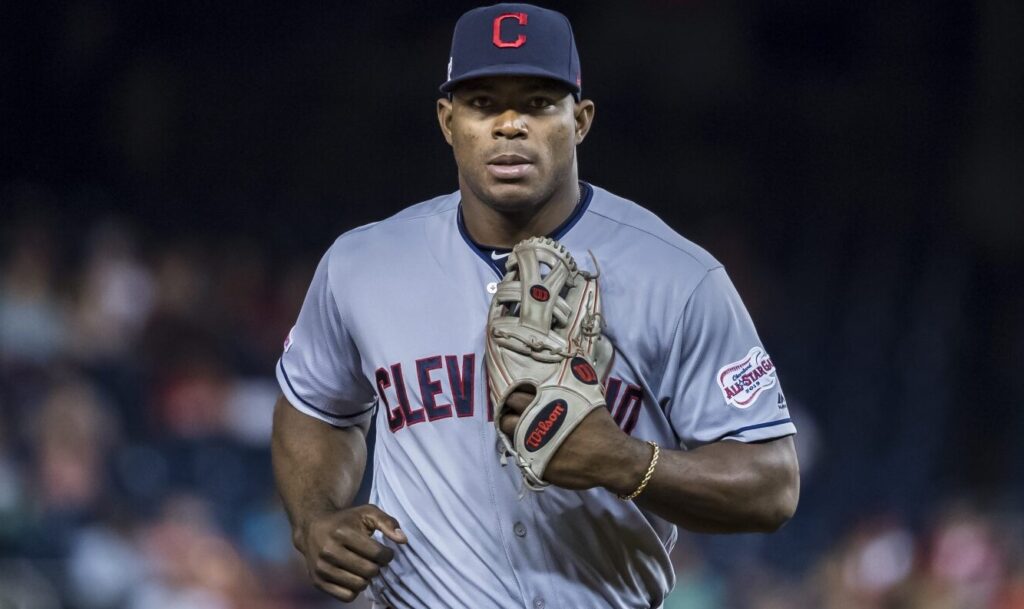
D3 Baseball Players Who Made it to MLB
The journey from Division III (D3) baseball to the ranks of Major League Baseball (MLB) is a narrative rich with determination and talent. While not as heralded as their counterparts from larger programs, D3 baseball players have proven time and again that they can leave an indelible impact on the professional stage.
Scanning MLB Rosters: D3 Alumni’s Current Impact
Today’s MLB rosters feature a cadre of talent that has risen from the D3 baseball scene to the pinnacle of baseball success. These players, once plying their trade on smaller college diamonds, now stand tall on some of the biggest stages in sports, competing for World Series championships and earning the admiration of fans across the globe.
Albert Pujols: A Story of Determination and Triumph
Among the most inspiring tales is that of Albert Pujols, a D3 baseball player whose career trajectory has been nothing short of stellar. Starting at Maple Woods Community College, Pujols’ exceptional play caught the attention of the St. Louis Cardinals, leading to a storied MLB career that includes multiple World Series championships and over 650 career home runs. His remarkable ascent from a D3 institution underscores the caliber of talent and the sheer will to succeed found within the D3 baseball ranks.
| Player | D3 College | MLB Team(s) | Accomplishments |
|---|---|---|---|
| Albert Pujols | Maple Woods Community College | St. Louis Cardinals, Los Angeles Angels, Los Angeles Dodgers | 3× MVP, 10× All-Star, 2× World Series Champion |
| Mike Piazza | Miami-Dade Community College | Los Angeles Dodgers, New York Mets, Others | Hallof Famer, 12× All-Star, 1993 NL Rookie of the Year |
Unexpected Heroes: The Inspirational Stories of D3 MLB Players
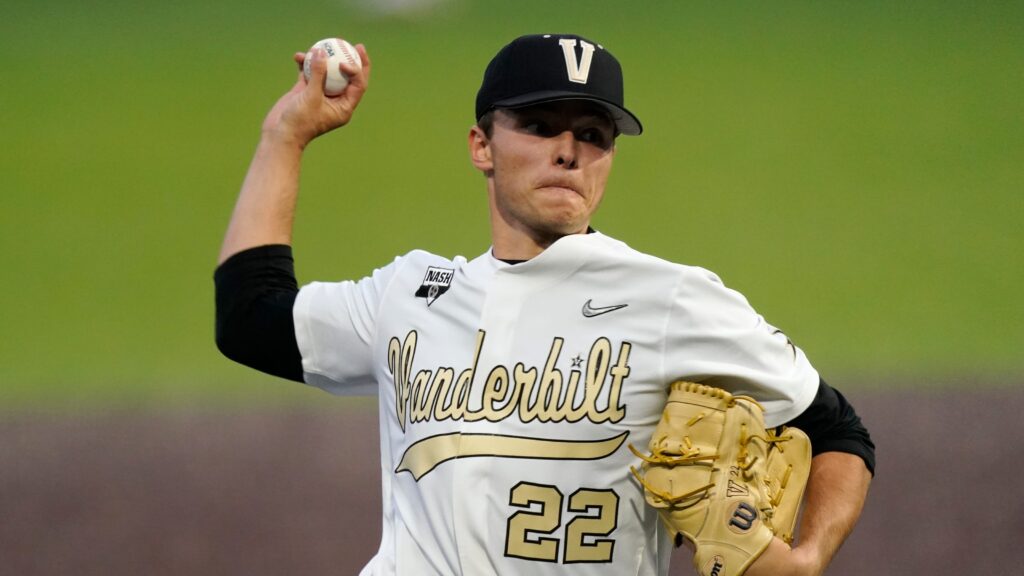
Source: northjersey.com
The journey to Major League Baseball (MLB) glory is replete with tales of resilience and perseverance, particularly for D3 players who begin their path far from the limelight. D3 baseball players’ success stories are not just about talent; they are also a testament to the indomitable spirit and dedication required to overcome the odds stacked against smaller program athletes.
One such narrative is that of Mike Piazza, who defied expectations by transitioning from a disregarded 62nd round pick to one of the greatest hitting catchers in MLB history. His path from a Division III college to the National Baseball Hall of Fame highlights the unanticipated success that D3 players can achieve.
Mason Miller, while not as well-known as Piazza, is another D3 player who has climbed the ranks to make his mark. Navigating challenges distinctive to athletes from less recognized programs, Miller’s relentless work ethic and undeniable talent have begun to carve his chapter in MLB history.
These D3 athletes exemplify the raw determination and grit that propels players from inhibited beginnings to celebrated careers on baseball’s biggest stage.
Ingrained within the fabric of their stories is the relentless pursuit of excellence, an immeasurable drive that transforms underdog labels into badges of honor. The following table provides insights into how their remarkable stories unfolded:
| Player | Division III School | MLB Milestone |
|---|---|---|
| Mike Piazza | Miami-Dade Community College | National Baseball Hall of Fame Inductee |
| Mason Miller | Waynesburg University | Bay Bridge Series Debut |
The legacies carved by such D3 baseball players serve as an ode to those who continue to chase their grand MLB dreams from the humbler fields of Division III baseball. Their success stories are not just inspiring for fans and fellow athletes but also serve as pivotal lessons in the power of conviction and the potency of an undying spirit within the realm of sports.
D3 Baseball Histories: Mapping Out the Success Stories
The journey from D3 baseball to the Major League is a testament to tenacity and raw talent. It’s a narrative interwoven with inspirational figures, none more so than Jackie Robinson and Mike Piazza. These individuals not only made their mark on the field but also left an indelible impact on MLB history.
Jackie Robinson: From JUCO Star to Baseball Legend
Jackie Robinson’s legacy goes beyond his athleticism; it is a potent symbol of change and progress in America. His transition from Pasadena Junior College to the forefront of Major League Baseball as an iconic figure is woven within the tapestry of America’s cultural and social transformation. Robinson didn’t simply play a game; he revolutionized it, making him a perennial figure in MLB history.
Mike Piazza: A Favor That Changed Baseball History
Equally remarkable in the annals of MLB Draft history is the story of Mike Piazza, whose entry into Major League Baseball began almost serendipitously, yet unfolded into a celebrated career. Being picked in the 62nd round, not for stats but as a favor, Piazza’s grit and prowess behind the plate firmly established him as one of the best in the game, redefining the potential of late-round draft picks.
Below is a comparative look at the careers of these legendary players, highlighting their unique paths through JUCO to MLB stardom:
| Player | College | MLB Debut | Achievements |
|---|---|---|---|
| Jackie Robinson | Pasadena Junior College | 1947 | 6x All-Star, MLB Rookie of the Year (1947), World Series Champ (1955), National League MVP (1949) |
| Mike Piazza | Miami-Dade Community College | 1992 | 12x All-Star, 10x Silver Slugger Award winner, NL Rookie of the Year (1993), NY Mets Hall of Fame |
Jackie Robinson and Mike Piazza prove that the MLB diamond has many facets, each shimmering with stories of persistence and breakthrough. Their MLB Draft history is a compelling reminder of the diverse and sometimes unexpected journeys that can lead to baseball immortality.
Transformative Challenges and Triumphant Journeys to the MLB
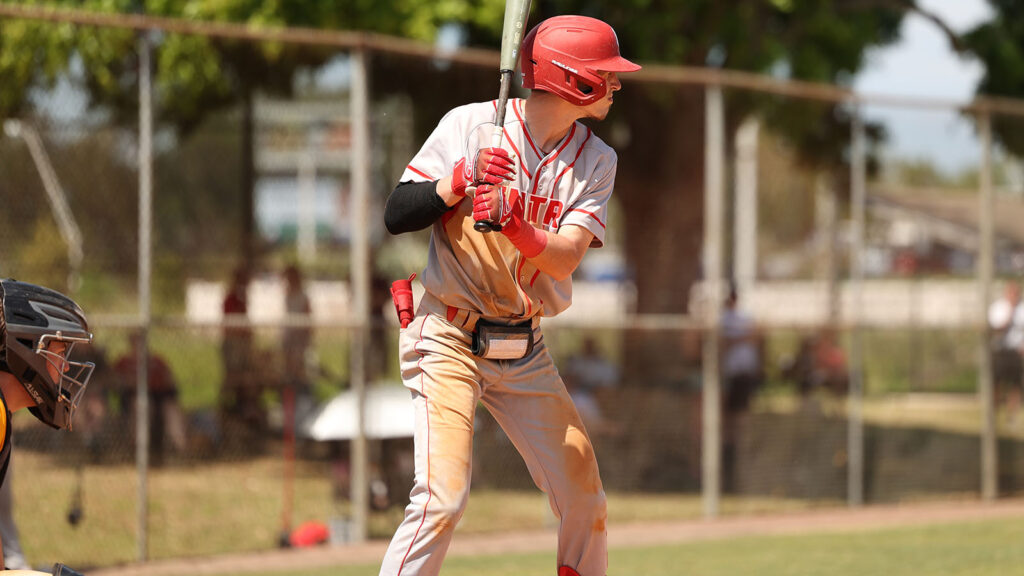
Source: athletics.central.edu
For many Junior College (JUCO) baseball players, the MLB journey is not just about batting averages and stolen bases; it’s a multifaceted odyssey that stretches far beyond the diamond. These ambitious athletes confront a dual battle – to perfect their craft against the backdrop of fierce competition and to navigate the academic pressures that come with being a student-athlete.
Yet, it is within these very challenges that the seeds of triumph are sown. Committed to personal and athletic growth, JUCO players often emerge as adaptable, determined competitors poised to take the professional baseball world by storm.
From the sandlots to sold-out stadiums, the progression to Major League Baseball is a testament to fortitude, adaptability, and the relentless pursuit of excellence.
- Determination: JUCO players often hone their skills away from the limelight, focusing on personal improvement and the grind that comes with the game.
- Adaptability: Transitioning from JUCO to MLB requires a player to adjust to varying levels of play, instruction, and spotlight.
- Advancement: Through dedication and performance, JUCO athletes prove that the stepping stones to success are laid with perseverance and hard work.
Indeed, their journeys are as varied as the talents they possess. Some JUCO alumni blaze onto the scene, ready for the big leagues, while others persevere through the minors, sharpening their skills until their moment arrives. Each story is unique, each path fraught with obstacles – but the destination remains a shared dream: to play among the best in Major League Baseball.
Breaking Barriers: From Modest Beginnings to Professional Peaks
The journey from fringe prospect to MLB notoriety is paved with relentless determination and resilience, a narrative that resonates profoundly with players like Mason Miller and coaches such as Kai Correa. Their remarkable ascensions from the minor leagues and collegiate ball to the grand stage of Major League Baseball exemplify the sheer willpower and adaptability inherent in the sport’s most inspiring figures.
Mason Miller: Defying Odds Following a Diabetes Diagnosis
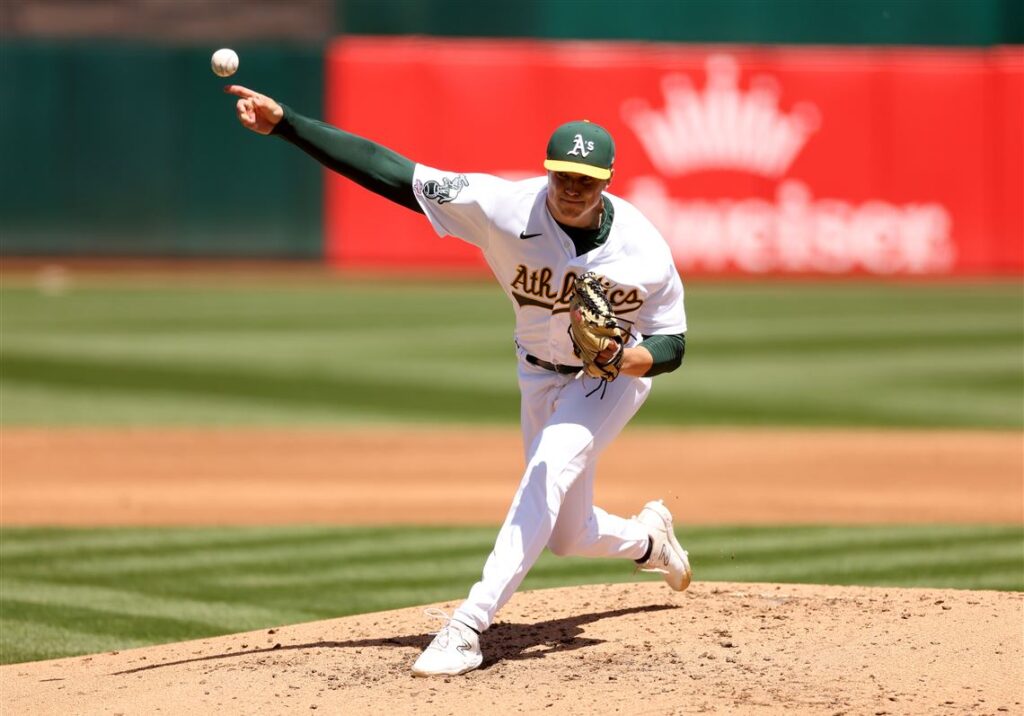
Source: muzejvojvodine.org.rs
Confronted with a life-altering diagnosis of Type 1 diabetes, Mason Miller’s prospects of professional baseball could have easily dimmed. Instead, his condition became a catalyst for transformation, pushing him to meticulously manage his health and refine his athletic prowess.
The result was a phenomenal increase in pitching velocity, with his fastball exceeding the 100 MPH mark—a feat that captivated the Oakland Athletics during the MLB Draft. His story of overcoming personal health challenges and making an impressive debut exemplifies the relentless spirit of a new generation of MLB players.
Kai Correa: An Unprecedented Coaching Ascent
Kai Correa’s rise to prominence is nothing short of meteoric, shattering the conventional timeline of coaching progression in Major League Baseball. His appointment as the bench coach for the San Francisco Giants marked him as a trailblazer, setting new precedents for rapid professional advancement from Division III roots.
Correa’s reputation for innovative coaching strategies and fostering strong interpersonal relationships with players underscores the transformative and progressive nature of leadership within MLB’s coaching ranks.
As the MLB continues to evolve, stories like those of Mason Miller and Kai Correa shine a light on the extraordinary possibilities for individuals with passion, talent, and an unwavering work ethic to make their mark, no matter their starting point. Their breakthroughs are not just personal victories but milestones that continue to shape the dynamic fabric of America’s beloved pastime.
Conclusion
The chronicles of D3 baseball players who have ascended to the ranks of MLB are rich tapestries woven with persistence, innate talent, and sometimes, serendipity. Each player’s journey to the game’s highest professional level in the United States is a testament to the broad spectrum of pathways that exist within the sport of baseball.
These stories aren’t merely about athletic brilliance but are rooted in a tenacious spirit that drives players from smaller college programs to break into the highly competitive world of Major League Baseball.
For many D3 baseball players, their journey to MLB bears a replete ensemble of challenges and choices atypical to their counterparts from more prestigious programs. However, their ascent to the apex of their sport is far from accidental.
Also read: Best Walk-Up Songs by Genre for Baseball Players
Their arrival on MLB rosters underscores the interplay between resilience and opportunity – a dynamic landscape where dogged determination intersects with moments of discovery by scouts and coaches attuned to potential rather than pedigree.
Ultimately, the narratives of D3 players finding success in MLB contribute significantly to the rich tapestry of the sport’s history. These players reaffirm the idea that baseball is a game for all, where the measure of a player is the grit they exhibit and the performance they deliver, above the reputation of their alma mater.
They continue to redefine what it means to progress from D3 baseball players to MLB icons, assuring aspiring athletes that dreams of playing at the highest level could indeed be within their grasp.
FAQ
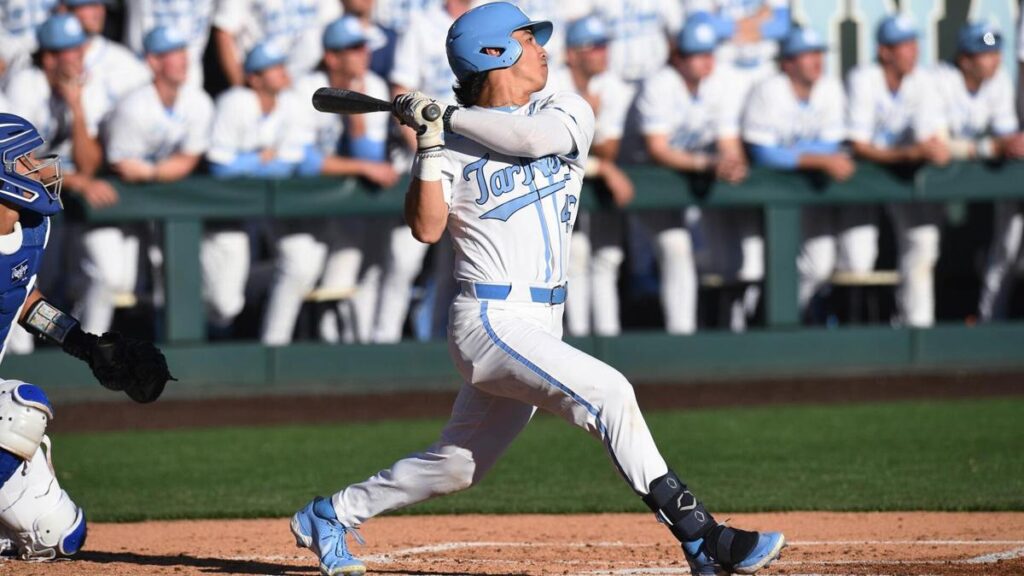
Source: greensboro.com
What are some success stories of D3 baseball players advancing to MLB?
Successful transitions from D3 baseball to MLB include players like Albert Pujols, who started at Maple Woods Community College before being drafted by the St. Louis Cardinals, and Tim Anderson, who played at East Central Community College prior to joining the major leagues. Their journeys display how players from smaller programs can make significant impacts in the MLB.
What challenges do D3 baseball players face in their journey to the MLB?
D3 baseball players often struggle with lower visibility compared to their counterparts at higher division schools, facing challenges in gaining recognition and exposure. However, through consistent performance and notable achievement, many D3 players have successfully overcome these obstacles.
How does junior college (JUCO) serve aspiring MLB players?
JUCO colleges offer players the chance to gain academic eligibility, play regularly, and possibly remain closer to home. They provide a setting where players can improve their skills and academic standing, consequently attracting attention from bigger college programs or professional scouts.
Can you provide a notable example of a JUCO player who made it to MLB?
Bryce Harper is a prime example of a successful JUCO player. He attended The College of Southern Nevada, excelled at baseball with a wood bat, and was eventually selected as the first overall pick by the Washington Nationals in the 2010 MLB Draft.
What role has Pasadena City College played in MLB history?
Pasadena City College has a storied history in the MLB, most prominently as the junior college that Jackie Robinson attended before his legendary career with the Brooklyn Dodgers and breaking the MLB’s color barrier.


